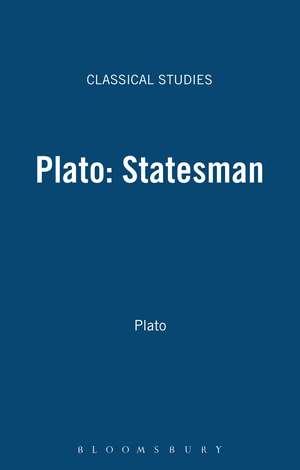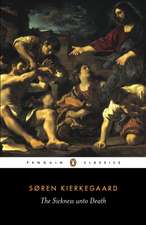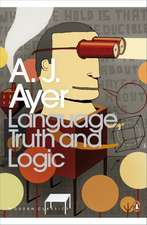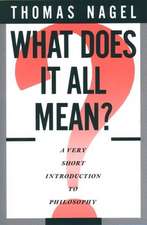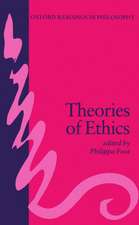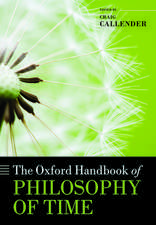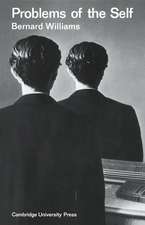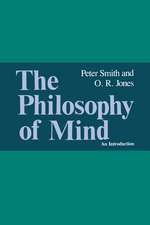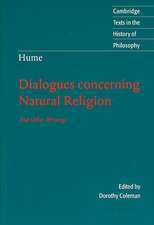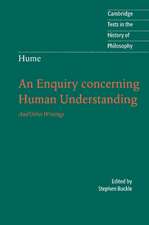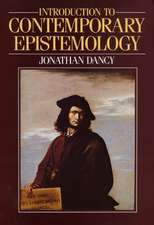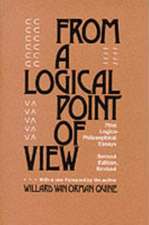Plato: Statesman: Classical Studies
Autor Plato Traducere de J.B. Skempen Limba Engleză Paperback – 25 sep 2002
Din seria Classical Studies
-
 Preț: 185.93 lei
Preț: 185.93 lei - 14%
 Preț: 130.91 lei
Preț: 130.91 lei - 14%
 Preț: 143.24 lei
Preț: 143.24 lei - 15%
 Preț: 149.16 lei
Preț: 149.16 lei - 15%
 Preț: 148.35 lei
Preț: 148.35 lei - 14%
 Preț: 152.01 lei
Preț: 152.01 lei - 15%
 Preț: 142.34 lei
Preț: 142.34 lei - 14%
 Preț: 144.12 lei
Preț: 144.12 lei - 14%
 Preț: 143.41 lei
Preț: 143.41 lei -
 Preț: 143.15 lei
Preț: 143.15 lei -
 Preț: 143.06 lei
Preț: 143.06 lei - 13%
 Preț: 155.22 lei
Preț: 155.22 lei - 14%
 Preț: 171.22 lei
Preț: 171.22 lei - 15%
 Preț: 148.89 lei
Preț: 148.89 lei -
 Preț: 142.26 lei
Preț: 142.26 lei -
 Preț: 133.15 lei
Preț: 133.15 lei - 14%
 Preț: 151.13 lei
Preț: 151.13 lei - 19%
 Preț: 131.29 lei
Preț: 131.29 lei - 15%
 Preț: 124.03 lei
Preț: 124.03 lei -
 Preț: 123.40 lei
Preț: 123.40 lei - 14%
 Preț: 171.39 lei
Preț: 171.39 lei - 14%
 Preț: 164.40 lei
Preț: 164.40 lei - 14%
 Preț: 143.94 lei
Preț: 143.94 lei - 14%
 Preț: 165.03 lei
Preț: 165.03 lei
Preț: 171.85 lei
Preț vechi: 199.23 lei
-14% Nou
Puncte Express: 258
Preț estimativ în valută:
32.88€ • 34.42$ • 27.21£
32.88€ • 34.42$ • 27.21£
Carte tipărită la comandă
Livrare economică 05-19 aprilie
Preluare comenzi: 021 569.72.76
Specificații
ISBN-13: 9780862921910
ISBN-10: 0862921910
Pagini: 248
Dimensiuni: 135 x 216 x 13 mm
Greutate: 0.32 kg
Ediția:Nouă
Editura: Bloomsbury Publishing
Colecția Bristol Classical Press
Seria Classical Studies
Locul publicării:London, United Kingdom
ISBN-10: 0862921910
Pagini: 248
Dimensiuni: 135 x 216 x 13 mm
Greutate: 0.32 kg
Ediția:Nouă
Editura: Bloomsbury Publishing
Colecția Bristol Classical Press
Seria Classical Studies
Locul publicării:London, United Kingdom
Recenzii
Platonists must all be grateful to Professor Skemp for this very valuable book.
Descriere
Plato's "Politicus" (Statesman) stands, both in date and in political thought, between the "Republic" and the "Laws". This edition contains the text in translation, an introduction, a running commentary and a new appendix taking into account scholarship since the first (1952) edition.
Cuprins
Preface; Abbreviations; Introduction; Part I. Prolegomena to the Dialogue: 1. Introduction; 2. Summary and analysis of composition; 3. Is the Clitophon unfinished?; 4. The Clitophon as a Short Dialogue; 5. The characters of the dialogue; Part II. Meaning and Authenticity: 6. Philosophical protreptic in the fourth century BCE; 7. Protreptic in the Clitophon; 8. Protreptic in Plato; 9. Elenchos in the Clitophon; 10. Justice in the Clitophon; 11. The meaning of the Clitophon; 12. Date and authenticity; Text and translation; Commentary; Appendices: I. The ending of Aristotle's Protrepticus; II. Note on the text; Bibliography; Indexes.
Notă biografică
Plato was an ancient Greek philosopher born in Athens during the Classical period in Ancient Greece. In Athens, Plato founded the Academy, a philosophical school where he taught the philosophical doctrines that would later become known as Platonism. Plato (or Platon) was a pen name derived, apparently, from the nickname given to him by his wrestling coach - allegedly a reference to his physical broadness. According to Alexander of Miletus quoted by Diogenes of Sinope his actual name was Aristocles, son of Ariston, of the deme Collytus (Collytus being a district of Athens).[2]Plato was an innovator of the written dialogue and dialectic forms in philosophy. He raised problems for what later became all the major areas of both theoretical philosophy and practical philosophy. His most famous contribution is the Theory of forms, which has been interpreted as advancing a solution to what is now known as the problem of universals. He is also the namesake of Platonic love and the Platonic solids.His own most decisive philosophical influences are usually thought to have been, along with Socrates, the pre-Socratics Pythagoras, Heraclitus, and Parmenides, although few of his predecessors' works remain extant and much of what we know about these figures today derives from Plato himself.[a]Along with his teacher, Socrates, and his student, Aristotle, Plato is a central figure in the history of philosophy.[b] Unlike the work of nearly all of his contemporaries, Plato's entire body of work is believed to have survived intact for over 2,400 years.[6] Although their popularity has fluctuated, Plato's works have consistently been read and studied.[7] Through Neoplatonism Plato also greatly influenced both Christian and Islamic philosophy (through e.g. Al-Farabi). In modern times, Alfred North Whitehead famously said: "the safest general characterization of the European philosophical tradition is that it consists of a series of footnotes to Plato
Caracteristici
Concludes that justice, self-control (sophrosyne), and virtue (arete) are 'natural'; the city which displays them is most truly free; the individuals who possess them will achieve their true destiny.
